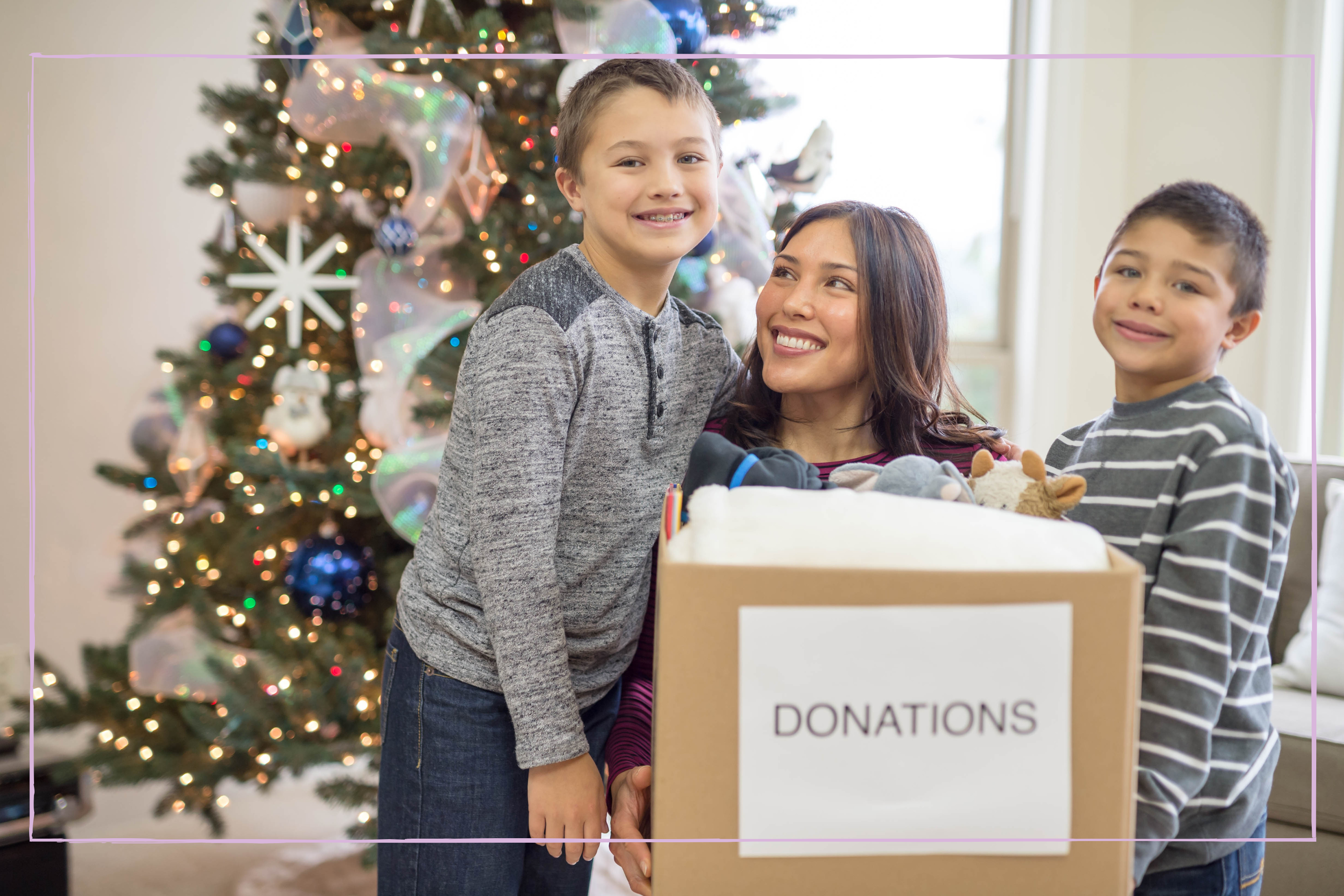5 ways to teach kids empathy skills at Christmas – and #2 is especially important
“It can be really powerful to remind them that giving comes in many forms”


The holiday season is a time for celebrating and swapping presents with loved ones, but there’s one gift that money can’t buy this Christmas.
You’ll no doubt be busy scrabbling around for the best places to hide Christmas presents from your kids or asking the mum group chat how they plan to help the kids fall asleep on Christmas Eve when the time comes.
That said, Christmas can often shine a light on inequalities, from the families who can’t afford lavish gifts to those that struggle with loneliness while others reconnect with their loved ones. But rather than avoiding these conversations, empathy expert Mimi Nicklin believes we need to speak to our kids about this to encourage them to become more mindful of how we fit into the world around us, and what we can all do to make it better.
Mimi tells us: "By instilling a sense of empathy in our little ones at a young age, we offer our world the best chance of a more connected, just and kind future. It can be really powerful to remind them that giving comes in many forms – our kindness, listening, perspective and joy."
Here are five easy ways to teach your kids empathy this Christmas.
1. Discuss the meaning of empathy
Start by having open and frequent conversations about the lives of others, suggests Mimi. “Explain that, during the festive season, it’s not just about giving and receiving gifts, but also showing [your] understanding towards others.”
Mimi says that this can be demonstrated through compassion, patience and listening to friends and family.
GoodtoKnow Newsletter
Parenting advice, hot topics, best buys and family finance tips delivered straight to your inbox.
2. Teach them about different experiences
When it comes to teaching kids about how others might live, honesty is the best policy, says Mimi: “Share stories of individuals or families who may not receive gifts during Christmas and discuss the challenges they face. We often shy away from ‘sad’ realities for our children, but they need to understand sadness or lacking in others as much as they do the joy and gratitude of ‘having’.”
By exposing children to different perspectives, children can develop empathy and understand that not everyone's circumstances are the same, Mimi explains.
3. Encourage giving back
Teaching kids empathy skills also means learning not to take anything for granted. To do this, Mimi suggests making giving back part of your family’s Christmas traditions.
"Involve your children in acts of charity, such as donating clothes or volunteering at a local shelter," she advises. "These hands-on experiences allow children to understand the realities of others and truly empathise with people who live differently from them, as well as connect first-hand with the impact they can have on others."
4. Practice active listening
Children are never too young to learn active listening, according to Mimi. What is active listening, you ask?
Well, The Center for Parenting Education describes active listening as 'the single most important skill you can have in your parenting 'toolbelt''. It's 'a specific form of communication that lets another person know that you are 'with them'; aware of what they are saying, accepting of their perspective, and appreciative of their situation.'
“Teach them to always ask people ‘how does that make you feel?’, and really listen to the answers," Mimi adds.
5. Share stories
Although empathy is taught primarily by role modelling, storytelling is also a powerful tool. Whether it’s through books or films, you’ll give your children the gift of the imagination and honing this skill as they imagine living in another’s reality.
"A Christmas Carol is a classic tale of seeing things through a different lens, and realising the importance of compassion and empathy at this time of year," says Mimi. "Sharing and telling stories with your children can be an incredibly impactful tool for helping them gain new perspectives and create shared understanding with those around us," she concludes.
For more parenting advice, check out our guide on how to teach kids to think for themselves and how to help a highly sensitive child go back to school.

From building healthy family relationships to self-care tips for mums and parenting trends - Daniella also covers postnatal workouts and exercises for kids. After gaining a Print Journalism BA Hons degree and NCTJ Diploma in Journalism at Nottingham Trent University, Daniella started writing for Health & Wellbeing and co-hosted the Walk to Wellbeing podcast. She has also written for Stylist, Natural Health, The Sun UK and Fit & Well. In her free time, Daniella loves to travel, try out new fitness classes and cook for family and friends.